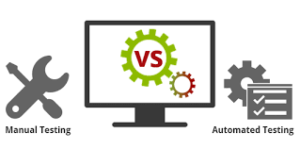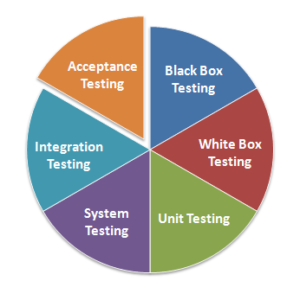Now we find out the Software Manual Testing Scope in Chandigarh which is the procedure of manually testing software for error. The tester assumes as end consumer and confirms all elements of the application to guarantee that the right behavior of the application. The Informal approach to manual testing is to gain an instinctive insight to how it feels to use the application. The Manual Testing is a notably fundamental sort of testing which finds the bugs in the application under test.
Table of Contents
Scope of Software Manual Testing in Chandigarh
Manual Testing opportunities are in plenty when you take a complete overlook of the entire IT sector. Every year number of IT companies releases multiple software and without Quality Check, No product is sold in this world. So you can just imagine the number of testers they require. That means Manual Testing has a very good scope.
Manual Testing Vs Automation Testing
But many companies now demand testers who know Automation as well as Manual. To save Time, Resources and Money, this is the new strategy that companies follow nowadays.
But Manual testers have the expertise to examine your application in ways that automated tests can’t. More often than not, that research is going to uncover more bugs than the automated tests can (or should). Also, Automation can do things that take a lot of time to be done manually.
Therefore if you are considering Manual Testing alone the scope is very less. But if you have both skills of Manual as well as Automation, the scope is very high as well as opportunities.
Software Manual Testing Career Growth
In the course of the most recent one decade, the profile of manual software tester has experienced huge changes. Testing has become work of art for several application/product implementations and business has realized the importance of structured testing of applications before release. The job opportunities and salaries for test professionals have grown as a function of this increased focus on software quality.
Software Manual Testing Techniques
- White-Box Testing: The tester is worried about the execution of the statements through the source code.
- Black-Box Testing: The software is run to check for the defects and is less concerned with how the processing of the input is done.
- Grey-Box Testing: Concerned with running the software while having an understanding of the source code and algorithms.
- Dynamic Testing: Involves execution of the software.
- Static Testing: Includes crosscheck requirements, a syntax of code and any other activities that do not include actually running the code of the program.
There are few stages. They are:
- Unit Testing: This initial stage in testing typically completed by the developer who created the code and sometimes by a peer using the white box testing technique.
- Integration Testing: This stage is processed out in two modes, as an entire package or as an increment to the earlier package. Most of the time black box testing technique is used. However, in some cases, a mix of Black and White box testing is also used in this stage.
- System Testing: In this stage, the software is tested from every single conceivable measurement for all planned purposes and platforms. In this stage, Black box testing technique is ordinarily utilized.
- User Acceptance Testing: This testing stage did with a specific end goal to get customer close down of a finished product. A ‘pass’ in this stage also guarantees that the customer has accepted the software and is ready for their use.
- Release or Deployment Testing: Onsite team will go to the customer site to install the system in customer designed environment and will check for the following points:
- Whether SetUp.exe is running or not.
- There are easy screens during installation
- How much space is occupied by system on HDD
- Is the system completely uninstalled when opted to uninstall from the system?
Education Background:
Education background of a software tester should be in Computer Science, B.Tech / B.E., MCA, BCA, BSc- Computers will land you a job effortlessly.
If you do not hold any of these degrees than you must complete a software testing certification like ISTQB and CSTE which help you learn Software Development/ Test Life Cycle and other testing methods.
In the software industry, technologies evolved with an amazing speed and a good software tester should upgrade his/her technical skills with the changing technologies. Your attitude must reveal a certain degree of independence where you take responsibility for the task allocated and finish it without much direct supervision.
Skills required becoming a Software Manual Tester
Following skills are irreplaceable to become a good software tester:-
- A good manual software tester should have sharp analytical skills.
- A good manual software tester must have strong technical skills. This would include a high level of capability in tools like MS Office, OpenOffice etc, Testing tools like QTP, Loadrunner, etc.. and of course, deep understand of the application under test. By relevant training and practice, these skills can be obtained.
- A good manual software tester must have a good verbal and written communication skill.
- Testing at times could be a demanding job especially during the release of code. A software tester must efficiently manage workload, have high productivity and exhibit optimal time management and organization skills.
- To be a good manual software tester you must have a GREAT attitude. An attitude to ‘test to break’, detail orientation, willingness to learn and suggest process improvements.
- To excel in any profession or job, one must have a great degree of the passion for it.
Software Manual Tester Average Salary Package
The average pay for a Software Tester is Rs 315,144 per year. Experience strongly influences salary for this job. The skills that increase pay for this job are Test Planning, Test Automation, Integration Testing, Selenium Automated Test Tool.






